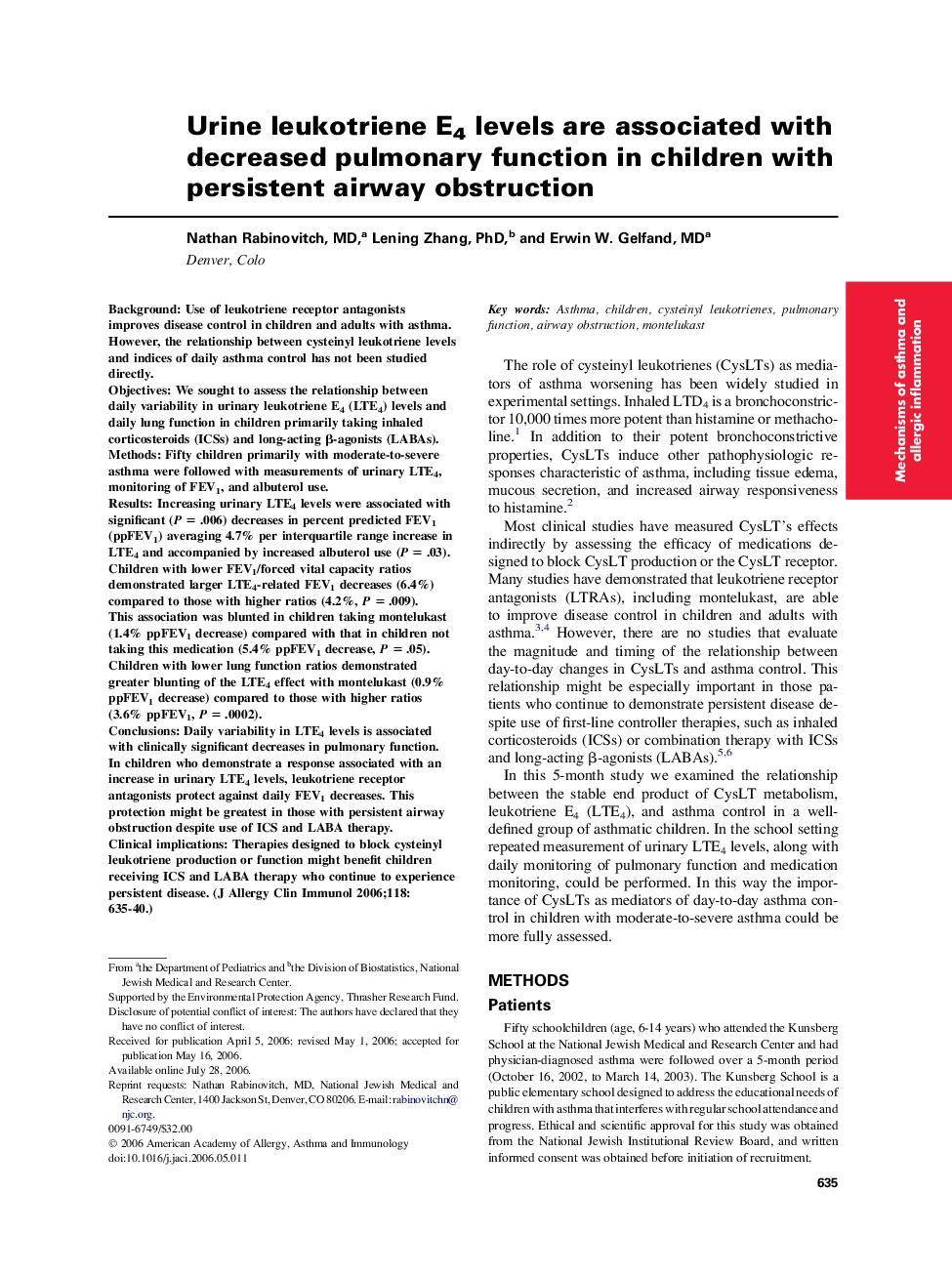| کد مقاله | کد نشریه | سال انتشار | مقاله انگلیسی | نسخه تمام متن |
|---|---|---|---|---|
| 3202895 | 1201981 | 2006 | 6 صفحه PDF | دانلود رایگان |

BackgroundUse of leukotriene receptor antagonists improves disease control in children and adults with asthma. However, the relationship between cysteinyl leukotriene levels and indices of daily asthma control has not been studied directly.ObjectivesWe sought to assess the relationship between daily variability in urinary leukotriene E4 (LTE4) levels and daily lung function in children primarily taking inhaled corticosteroids (ICSs) and long-acting β-agonists (LABAs).MethodsFifty children primarily with moderate-to-severe asthma were followed with measurements of urinary LTE4, monitoring of FEV1, and albuterol use.ResultsIncreasing urinary LTE4 levels were associated with significant (P = .006) decreases in percent predicted FEV1 (ppFEV1) averaging 4.7% per interquartile range increase in LTE4 and accompanied by increased albuterol use (P = .03). Children with lower FEV1/forced vital capacity ratios demonstrated larger LTE4-related FEV1 decreases (6.4%) compared to those with higher ratios (4.2%, P = .009). This association was blunted in children taking montelukast (1.4% ppFEV1 decrease) compared with that in children not taking this medication (5.4% ppFEV1 decrease, P = .05). Children with lower lung function ratios demonstrated greater blunting of the LTE4 effect with montelukast (0.9% ppFEV1 decrease) compared to those with higher ratios (3.6% ppFEV1, P = .0002).ConclusionsDaily variability in LTE4 levels is associated with clinically significant decreases in pulmonary function. In children who demonstrate a response associated with an increase in urinary LTE4 levels, leukotriene receptor antagonists protect against daily FEV1 decreases. This protection might be greatest in those with persistent airway obstruction despite use of ICS and LABA therapy.Clinical implicationsTherapies designed to block cysteinyl leukotriene production or function might benefit children receiving ICS and LABA therapy who continue to experience persistent disease.
Journal: Journal of Allergy and Clinical Immunology - Volume 118, Issue 3, September 2006, Pages 635–640